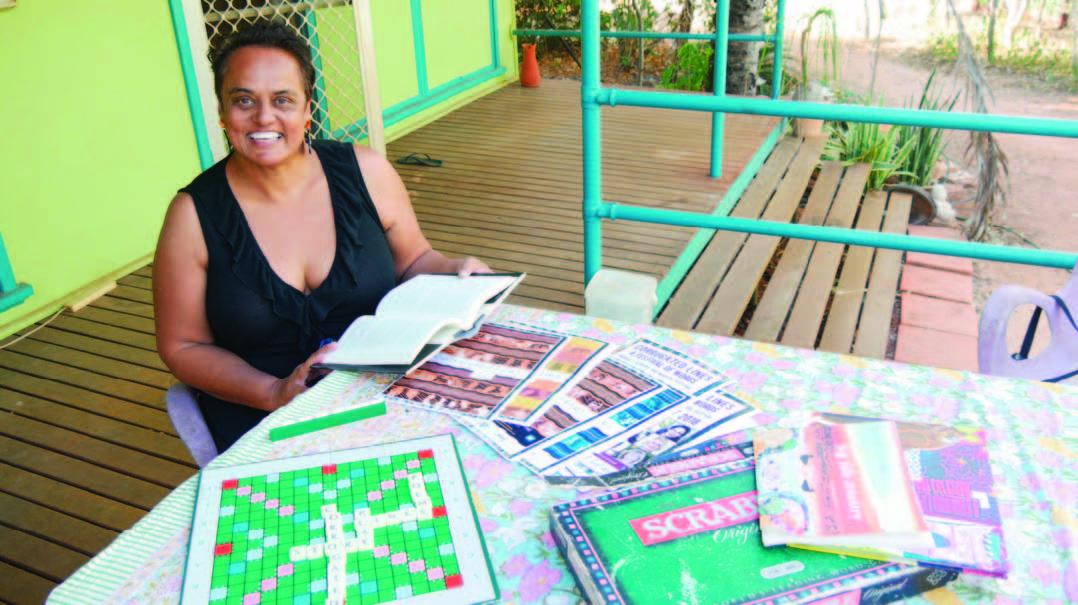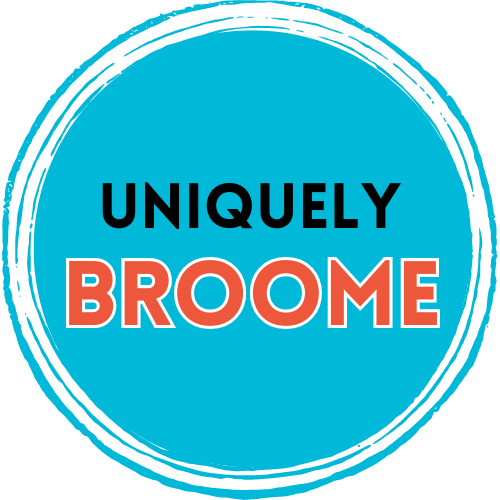
2022 - FESTIVAL OF WORDS
I was always going to the Writers’ Festival in Perth as I loved hearing people talk about their work. It was kind of my nerdy English Lit desire coming to the fore. In 2012, I was the Chairperson of Backroom Press, a small volunteer-run publishing house in Broome. It was the International Year of Reading and having a writers’ festival felt like the perfect storm idea. It was just going to be for the one year. We had no funding and thought a writer’s dinner with Peter Docker, an actor and writer who lived in Broome, would do. That one event turned into 16 events over one weekend.
Our first port of call was Magabala Books to see if they were interested in coming along on the journey. Nic Murray was Magabala’s marketing manager, and she jumped in, boots and all. That year happened to be Magabala’s 25th anniversary and Nic truly became a co-traveller in mapping out the adventure.
We spoke about what our intentions were for the festival — we wanted it to be a celebration of words in all its forms. We wanted it to be about community, connection, and, most importantly, co-creation. We wanted to take the festival to people who might not have imagined themselves as people who went to writers’ festivals.
I’d always noticed that writers’ festivals were filled with middle-aged white women. It just seemed to be the space inhabited by that group. I had a strong sense that we wanted to attract people who would not normally attend. We wanted to take the festival to gathering places so that people who were carrying out their daily business would find themselves pulled towards the adventure. We would hold pop-up events in places where people already were. They would bump into the festival and engage.
We wanted to support individuals and organisations to arrange their own event with some coordination from the volunteer team. With this concept of co-creation, it meant that each year’s festival would follow guiding principles and be created by whoever was involved. We brainstormed suitable names for the festival and ‘Corrugated Lines: a festival of words’ emerged.
It was to be an unfunded festival that relied on community energy and support. The way around that was to ask an organisation to pay for an author to come up to Broome. The organisation would host the author under the banner of Corrugated Lines. Sometimes, we just asked, ‘Would you like to come to Broome and give us a talk for an hour? You can claim it as a tax deduction and have a holiday’.
Looking back on the original programme, I am amazed. We had well-established authors and emerging creators. Many had connections to the Kimberley and there were friendships and families involved.
We even had a video conference link-up with Indigenous author, Kim Scott, which was very cutting edge in 2012 (long before Zoom!). Acclaimed authors, Bruce Pascoe and Anita Heiss, attended as guests of Magabala. We also celebrated Kimberley-based writers and held a launch of Kimberley Anthology published by Fremantle Press.
Workshops such as ‘How to get published’, a collaboration between Magabala and Backroom Press, and ’Taking words from the page to the stage’ were held. Events which continue to be presented are the poetry workshops with Cath Borthwick, and ‘Word of Mouth’, started by Deb Hannagan, which features guest authors and wordsmiths from the community.
Corrugated Lines has tried to be inclusive and acknowledges that the Kimberley is much bigger than Broome. There has always been an attempt to encourage people from throughout the Kimberley, and wider afield, to engage with the festival. Online events like ‘Kimberley Haiku’ and the ‘Best First Line’ competitions saw entries from across the Kimberley. This year, participants were invited to complete the ‘Theft of a pearl’ story.
There has also been the desire to take the festival on a road trip down the highway. I wonder if something sparks your interest enough to be involved next year. If you have an idea that you would like to make happen, jump on board to be a co-traveller.
Corrugated Lines has now moved into another chapter. There is a sense from the people involved that it is time to go for funding, although there was never a feeling that we were going to run the festival for three years, or ten years, or forever. It was always about whether there was enough interest around the table and then we will do something, and the festival would be shaped by those sitting at the table. Corrugated Lines is about community, connection, and co-creation. These are the elements we do not want to lose but how it evolves may be very different from its beginnings.
A few major co-travellers on the Corrugated Lines journey no longer live in Broome. Sally Eaton was the Broome Public Library Manager and worked tirelessly with her team every year. Sally has retired and is living down south but the library team continue to be great supporters. Nic Murray now lives in Florida. Alex Smee was a Backroom Press stalwart in the early days and her legacy continues in the giant tiles she meticulously painted for Speed Scrabble.
Rani Middleton was a much-loved local drama teacher and began her involvement from the first festival. She had a passion for bringing in young people and the schools. And my sister Mohini, who loved reading and being behind a mic, hosted the Big Book Club each year. She later stepped into the role of MC at Word of Mouth. Mohini was willing to MC anything she was asked to! They are all very much part of the Corrugated Lines journey and legacy.
I feel there have been some lovely and surprising events. I do not have a favourite, although Speed Scrabble is incredibly inclusive, hilarious, and it tickles my brain. It has since been used by community rangers for numeracy and literacy workshops. I also enjoy Word of Mouth as it not only showcases festival guests but there are often surprises with the people who come forward.
As Corrugated Lines has grown, it reminds me of when an off-road track becomes known. The corrugations become less rough, more people jump on board, new tracks open up, and the adventure takes a different direction. People become keener to join the journey because there is a proven track record.
Even though the final destination may be unknown each year, Corrugated Lines is always truly wonderful and worth celebrating. I am extremely proud of this festival and how it found its footing, matured, and evolved.
NOTE:
In 2021, Corrugated Lines celebrated its 10th Anniversary. Held in July/August each year, 2022 festival dates are 29–31 July.
For up-to-date information, check out https://www.facebook.com/CorrugatedLines
